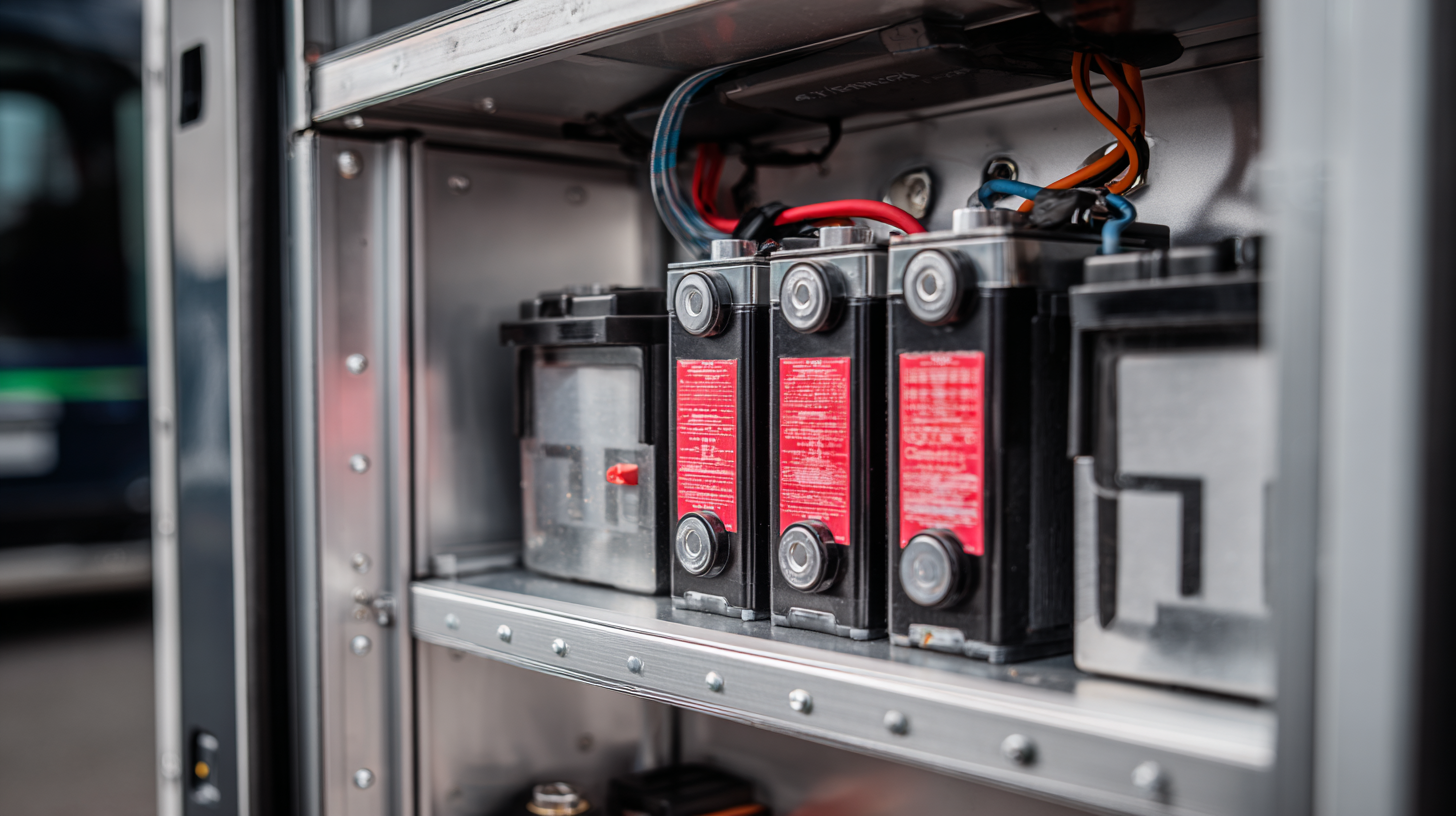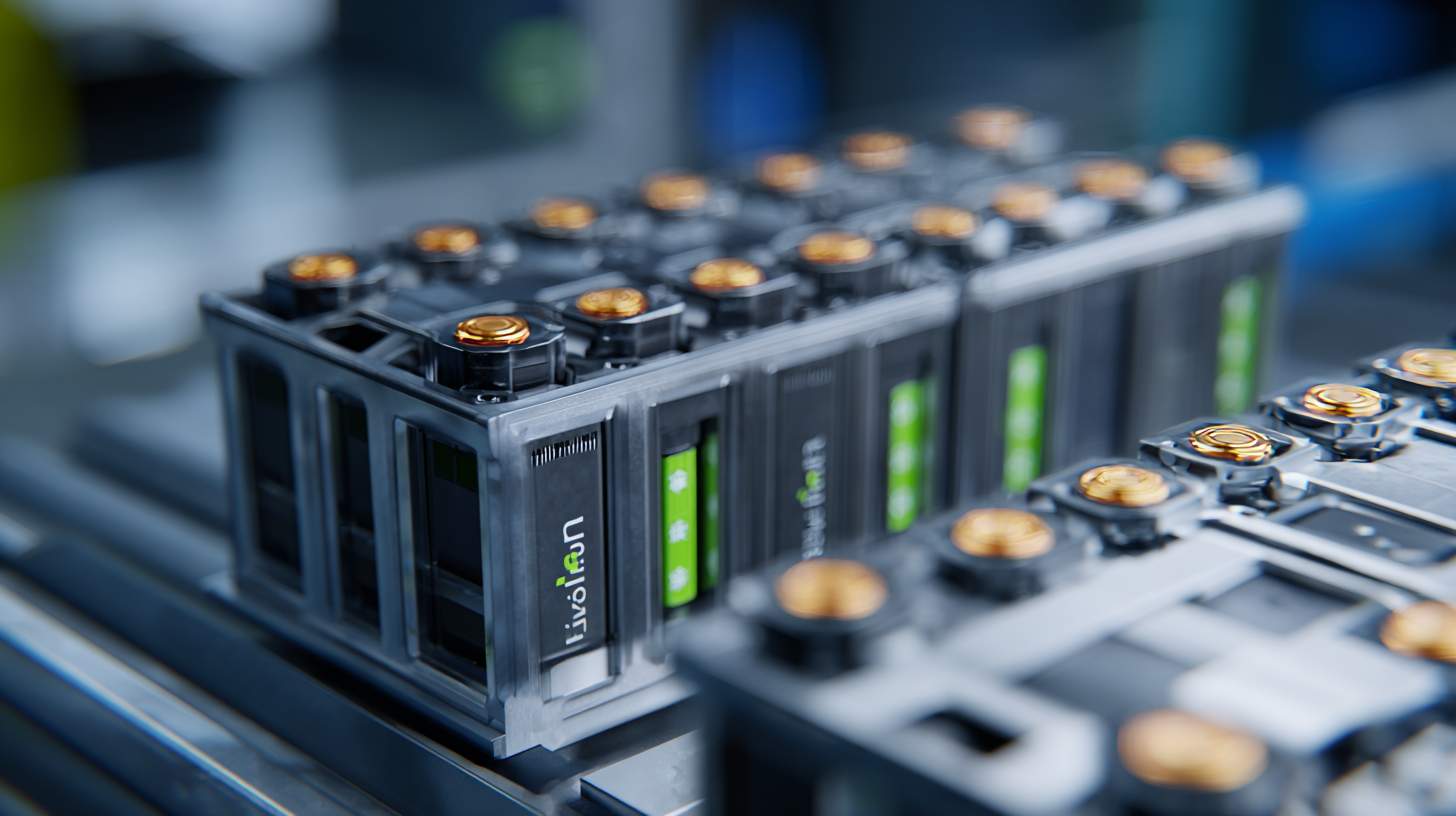Innovative Solutions for Efficient Energy Storage with Ionic Battery Technology
As the global demand for renewable energy sources continues to rise, the need for efficient energy storage solutions has never been more critical. Ionic Battery technology has emerged as a promising alternative to traditional energy storage systems, offering higher energy density, faster charging times, and longer lifespans. According to a recent report by the International Energy Agency (IEA), the market for advanced battery technologies is projected to reach $85 billion by 2027, with Ionic Batteries playing a pivotal role in this growth. As industries and consumers alike seek ways to enhance energy efficiency and reduce carbon footprints, the potential of Ionic Batteries to revolutionize energy storage systems is undeniable. This blog will explore innovative solutions and best practices for leveraging Ionic Battery technology to meet the challenges of energy storage in a sustainable future.

Emerging Trends in Ionic Battery Technology for Energy Storage
The field of energy storage is rapidly evolving, particularly with the emergence of ionic battery technology. One notable trend is the rise of sodium-ion batteries, which are gaining traction as a sustainable and economical alternative to lithium-ion batteries. With their ability to provide effective energy storage solutions at lower costs, sodium-ion batteries are projected to reach a market value of $974.11 million by 2033. This growth is driven by the increasing demand for efficient energy storage systems to support renewable energy integration and electric vehicle advancement.
Additionally, advancements in battery materials are significantly influencing the lithium-ion battery market. The growing popularity of lithium iron phosphate (LFP) as a cathode material highlights a shift towards safer and more efficient energy storage options. Notably, the exploration of aqueous electrolytes in multivalent metal-ion batteries is paving the way for improved energy density and power density. This innovation represents a crucial development in creating batteries that can support the escalating energy demands of modern technology while prioritizing sustainability.
Innovative Solutions for Efficient Energy Storage with Ionic Battery Technology
This chart illustrates the capacity (in kWh) and lifespan (in cycles) of various emerging ionic battery technologies. As the demand for efficient energy storage increases, these innovative solutions show significant improvements in both capacity and lifespan.
Key Advantages of Ionic Batteries Over Traditional Energy Solutions
Ionic battery technology is reshaping the energy storage landscape, offering significant advantages over traditional energy solutions. One of the key benefits is their superior energy density. According to a report by the International Energy Agency, ionic batteries can achieve energy densities exceeding 300 Wh/kg, while conventional lithium-ion batteries typically range from 150 to 200 Wh/kg. This higher energy density enables ionic batteries to store more energy in a smaller space, making them ideal for applications where efficiency and weight are critical, such as in electric vehicles and portable electronic devices.
Moreover, ionic batteries excel in charge/discharge rates, providing a distinct edge in performance. Research from the Journal of Power Sources indicates that ionic batteries can charge up to 70% faster than traditional batteries, significantly reducing downtime for applications that require rapid energy replenishment. Additionally, their longer lifecycle—projected to last up to 5,000 cycles—translates into lower operational costs and reduced waste, aligning with global sustainability goals. These advancements position ionic battery technology as a leading solution for efficient energy storage in an increasingly electrified world.
Environmental Impact: How Ionic Batteries Promote Sustainability
Ionic battery technology presents a transformative opportunity for energy storage with significant environmental benefits. Unlike traditional batteries that often rely on heavy metals and other harmful materials, ionic batteries utilize abundant, non-toxic elements, reducing the ecological footprint associated with their production and disposal. This innovation not only minimizes environmental pollution but also aligns with global sustainability goals by reducing reliance on non-renewable resources.
Moreover, ionic batteries enhance energy efficiency, supporting the integration of renewable energy sources such as solar and wind. As these sources are intermittent, advanced energy storage solutions are essential for stabilizing supply and demand. Ionic batteries can efficiently store energy generated during peak production times, enabling its use during high-demand periods and thereby promoting a cleaner energy grid. By facilitating a smoother transition to renewable energy, ionic battery technology plays a crucial role in combating climate change and fostering a sustainable future.
Innovative Solutions for Efficient Energy Storage with Ionic Battery Technology - Environmental Impact: How Ionic Batteries Promote Sustainability
| Dimension | Ionic Batteries | Conventional Batteries |
|---|---|---|
| Energy Density (Wh/kg) | 150-250 | 100-200 |
| Charge Time (hours) | 1-2 | 2-6 |
| Lifetime (cycles) | 2000-5000 | 500-1500 |
| Environmental Impact (CO2 Emissions) | Low | High |
| Recyclability | High | Medium |
| Cost ($/kWh) | 200-300 | 150-250 |
Scalability and Versatility of Ionic Battery Applications
The scalability and versatility of ionic battery technology are rapidly transforming the energy storage landscape. According to a report by BloombergNEF, the global battery energy storage market is projected to grow to 158 gigawatt-hours (GWh) by 2024, with lithium-ion batteries dominating the industry. However, ionic batteries offer a promising alternative due to their unique composition and lightweight properties, which facilitate larger-scale applications in various sectors, including electric vehicles (EVs), renewable energy integration, and portable electronics.
Ionic batteries can be tailored for different applications, enhancing their adaptability. For instance, they exhibit faster charging times and longer cycle lives compared to traditional battery technologies. A recent study published in the Journal of Power Sources highlights that ionic batteries can achieve over 10,000 cycles with minimal capacity degradation, making them optimal for grid storage solutions. Furthermore, their potential for integration with solar and wind energy systems positions ionic batteries as a key player in the future of sustainable energy storage, catering to both consumer needs and large-scale industrial demands. As energy storage requirements continue to evolve, ionic battery technology stands at the forefront, ready to meet diverse market challenges.

Future Prospects: Innovations Driving Ionic Battery Development
As the energy storage landscape evolves, the prospects for ionic battery technology are becoming increasingly promising. With a projected global market scale for energy storage systems (ESS) reaching approximately $14.7 billion in 2024, driven by innovative solutions and technological advancements, the future of ionic batteries appears bright. This growth signifies a shift from traditional energy systems to more efficient, sustainable alternatives, as companies continue to invest in developing cutting-edge battery technologies.
Recent developments, such as substantial funding for emerging firms focused on ion-based energy storage solutions, indicate a strong belief in the potential of these technologies. For instance, the recent launch of a lithium-rich manganese-based cathode material by a new startup marks a significant step forward in enhancing battery efficiency. The integration of
artificial intelligence and
smart manufacturing techniques highlighted at industry conferences suggests that we are on the brink of a new era in battery innovation, where the interplay of advanced technologies will shape the evolution of energy storage solutions over the coming decade.

